Kenneth R Frank Talks Collaboration, Festivals, and Making his Movie Family Obligations Stand Out
- Interview
Indie Film Junction | March 3, 2022

Indie Film Junction | March 3, 2022
We spoke with Kenneth R Frank about nimble crews, post production fixes, and festival strategy, all important components of his film Family Obligations.
IFJ: Congratulations on Family Obligations. Can you tell us what it’s about?
KF: Family Obligations is about a man named Peter Steele who comes back to his hometown to bury his father and ends up taking care of his sick uncle unexpectedly. He never had a satisfying relationship with his father, and his uncle represents this second chance. He also meets a single mother going through her own sort of lonely life. The film is about choosing to connect with people, about a person deciding that he’s kept himself away from people long enough and that he ought to figure out how to actually relate to another person in a meaningful way.
IFJ: Can you give us a breakdown of the production schedule? How many days did you shoot and over what period of time?
KF: We shot the film in the course of 8 days during October 2018. We scheduled everything as tightly as we possibly could, as we were on a very small budget. Fortunately, we had a tremendous cast that was able to execute very well. We also had a very small crew, so this was a fast-moving effort to get what we needed.
IFJ: What equipment did you use to make the film?
KF: We shot on an original Blackmagic Pocket Cinema Camera (the 1080p version) with a few Panasonic lenses (one zoom and two different primes) and an anamorphic adapter to finish in 2K scope. I really wanted to shoot this anamorphic, because so many of the frames are a single character, and I wanted a kind of wide, lonely feel to them. Giving yourself that much space on screen and only having one person in frame really created the mood for this. I also had this idea of how I wanted it to look, and I partnered with an amazing colorist named Jan Klier to finish the film. Since we shot on a Blackmagic camera in Cinema DNG, he finished in Resolve (he also did our final sound mix in ProTools), and we pushed a very strong, contrasty, Super 16mm color grade on the film. I’ve been to enough film festivals with film after film looking nearly identical, so I wanted to have something distinctive in this.
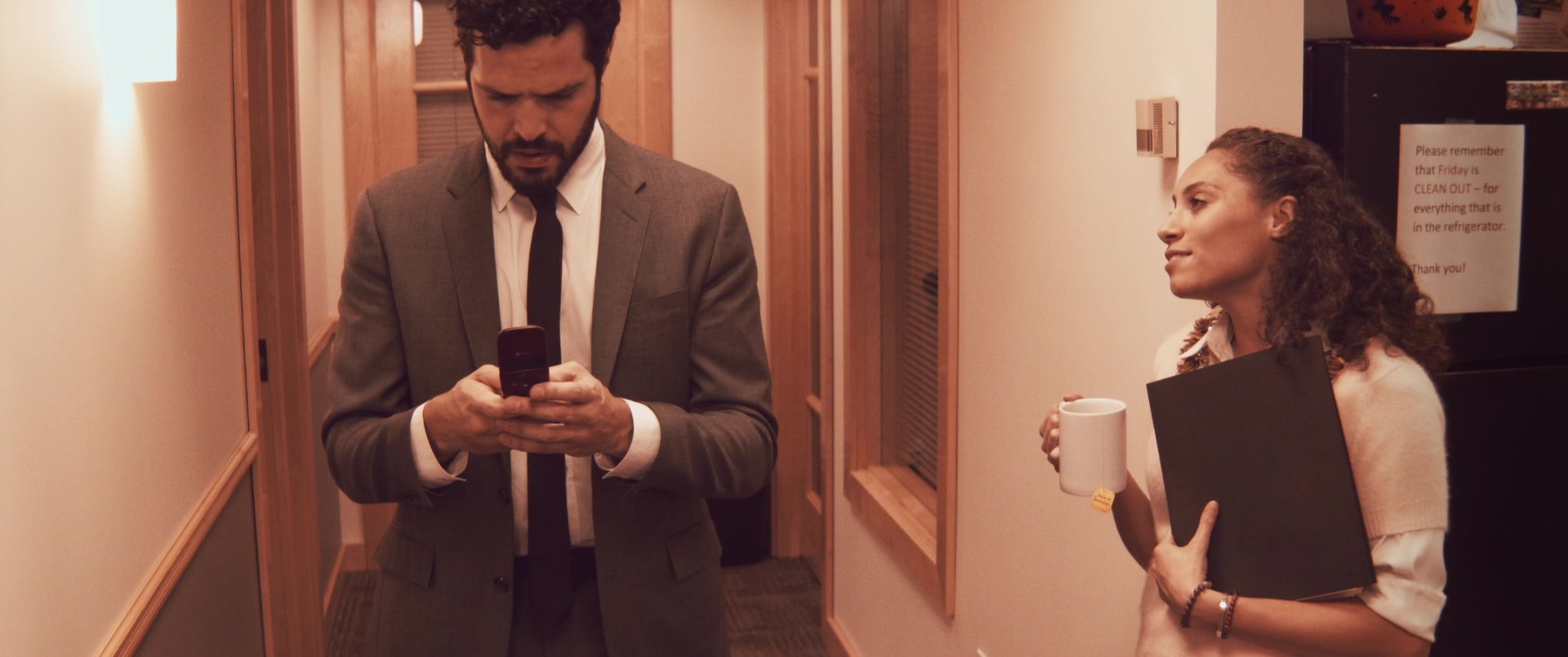
IFJ: What was the most challenging obstacle that came up during production, and how did you overcome it?
KF: I suppose the most challenging obstacle was making up for a lack of crew. We were a crew of three with me operating camera, my AD Kevin Wolfring handling sound, and either my wife (and our EP) Shawna Brandle or our all-purpose assistant Katie Treacy running slate and logging shots etc. I think we managed to have both Shawna and Katie on set in two of our bigger locations when we shot down on the boardwalk in Long Beach, NY and when we were in our office locations for Peter’s job and the doctor’s office, but that was our limit. So, ultimately, this meant cleaning up some mistakes in post, where again Jan was magic. Having to be both director and DP was a challenge, but I actually really enjoyed how it streamlined the process on set, too. Instead of blocking with the actors and then communicating to a DP or grip how I wanted to move people around a space and how it would affect lighting, I could move straight to setting things up myself. It’s not for everybody, I’m sure, but I l liked it.
IFJ: What was the post workflow?
KF: After we wrapped, Kevin Wolfring put together our first cut of the film. After some notes, Chris Mollica (who plays Peter) did a pass on the edit. Kevin and I then smoothed out the last few things before handing the film off to Jan Klier for final color and sound. Jan and I worked together to identify hero frames to build the look of the film around, and then we spent the next month refining it as best we could, addressing technical issues, finding ways to add ambience with sound, and give this very rough film as much polish as we could.
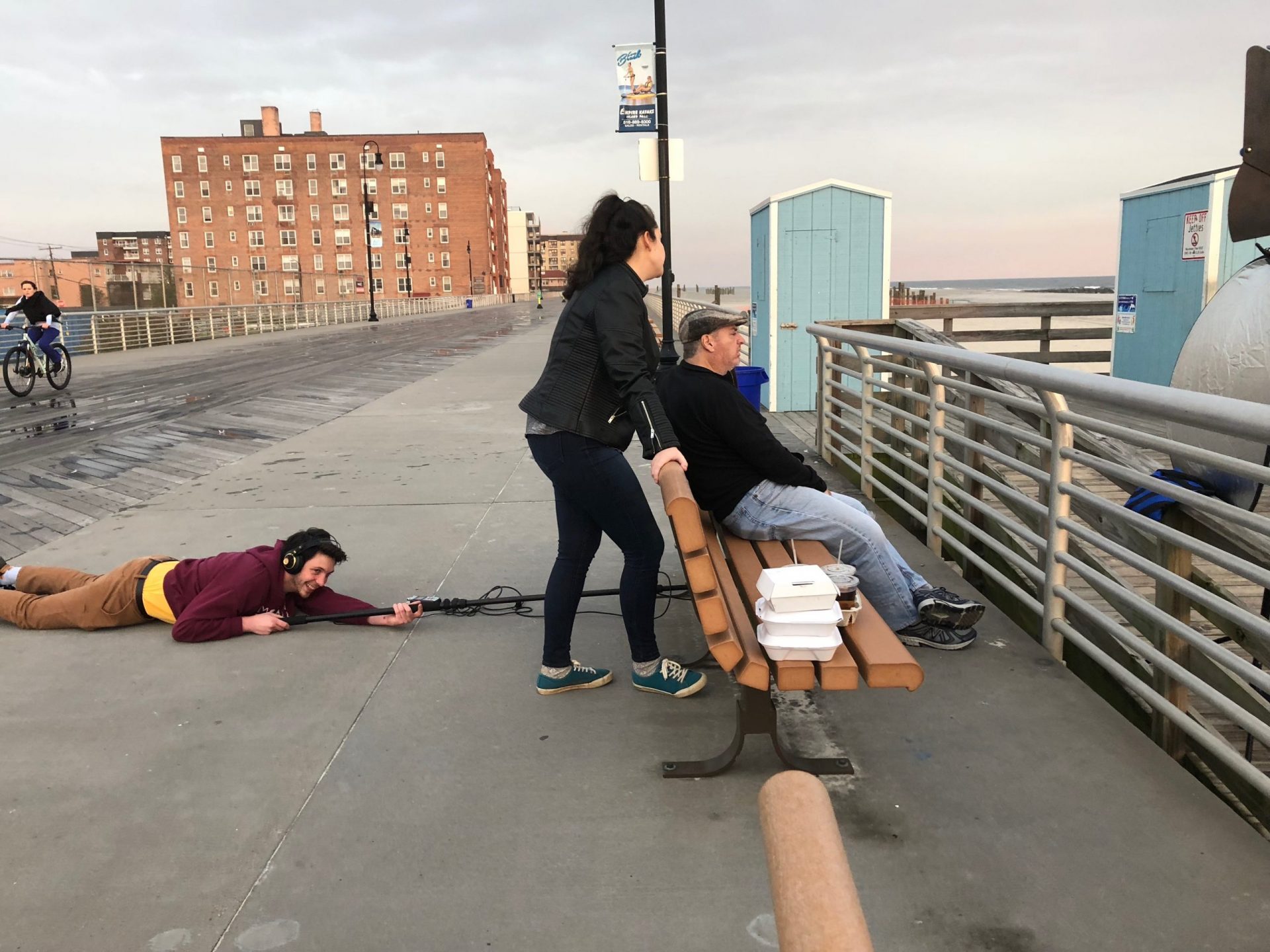
IFJ: What’s something you learned from making Family Obligations that you wish you knew going into production?
KF: Well, building off the obstacle of lack of crew, one thing I learned was just how much was possible to do in post-production. More than that, however, I think I learned just how much goes into making a film successful after the film itself is finished. I think I had the naive conception that many filmmakers have that you just make the best film you possibly can and the rest either happens or doesn’t from there. In reality, there is so much to do for your film, even well after you’ve locked it all up. Consequently, I still feel like the area I’m learning the most is how to get your film seen.
IFJ: Did you have a marketing and distribution strategy or a specific goal for Family Obligations?
KF: Our goals were pretty rudimentary to start with. We wanted to play festivals with the film, ideally more festivals than we had with previous films, and we wanted to find suitable distribution for it, which we thought would be landing it on the key streaming platforms. In that regard, we were successful, which was great. At a certain point in the festival run, though, we saw a few other opportunities and tried to capitalize on them. One such avenue was getting reviews. We got in touch with Bunker15, a company that publicizes indie films to Rotten Tomatoes critics, and we were able to get enough reviews to get a Tomatometer rating, and we were fortunate enough to be 75% fresh. I feel like that was helpful for the film as a conversation starter and opened a few doors for us. If you think of it, there are so many films out there, and it’s impossible to look at them all, but if you’re able to quantify the film in some respect, like saying it has a certain number of good reviews, I think it helps increase your chances that someone on the fence actually does take a look. So, while that wasn’t initially part of our strategy, I would say it was a great thing we picked up, and we hope to incorporate that in future work we do.
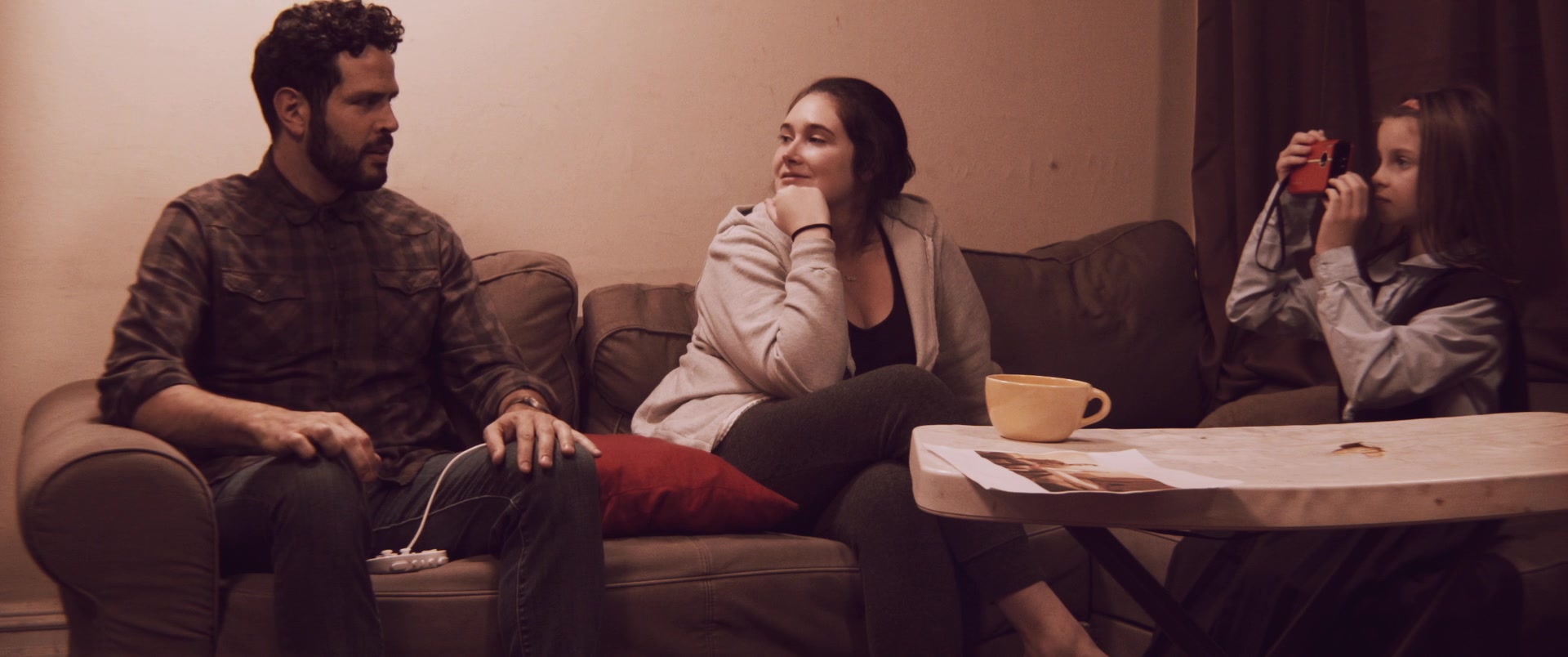
IFJ: How did you get into filmmaking?
KF: I studied screenwriting in college and did a BFA in it at NYU, but actually getting to make my own films was still a little out of my range when I first got out of school. I got a Masters in education and started teaching while trying to continue writing. The possibility of making films like this came about because the technology got so much more accessible to people like me. My best friend and long-time collaborator (and now brother-in-law) Chris Mollica and I made a feature together called The Mix before Family Obligations, and that was the fulfillment of a dream for us: actually having the tools to tell the type of story we wanted to tell and then executing on it. That movie played some festivals, won some awards, and was distributed by Comedy Dynamics, so now it felt like anything was possible. When I sat down to write Family Obligations, it was no longer the question of could we make this. Instead, it was how do we want to make it and just how close can we come to achieving that vision ourselves.
IFJ: Family Obligations was selected for the Austin Film Festival. What do you think filmmakers should do to make the most of a festival run?
KF: Such a great question, because it seems like the answer wouldn’t be too hard to figure out, but it is a much more complex process than it first seems. First and foremost, clear goal setting is key. If you don’t know what you’re trying to get out of something, it’s hard to really get anything out of it, at least in our experience. It was thrilling to be at a festival like Austin with a feature film. That year, films like Ford vs. Ferrari, Portrait of a Lady on Fire, The Two Popes, and Honeyboy were all playing there. The festival issued a press release with the feature titles with their writers’ and directors’ names listed, and my film and my name is on that document alongside Terrence Malick. That’s a surreal thing for someone who grows up loving film. But, along with that, comes the challenge of realizing that we were, in no way shape or form, equipped to make the most out of being at that festival. We simply had no budget to properly advertise that we were there. We had no connection to anyone or anything in the Austin community to attract attention to ourselves at the festival. We had no recognizable cast members, so we certainly weren’t attracting flashbulbs on their red carpet. I emailed all the press contacts they could give me, but we were simply too small of a movie to make any impression at this big event. We attended, we had a great time, and I’ve had countless conversations about the film with people simply because of Austin, so it was definitely a worthwhile experience, but it also felt like we weren’t able to make the most of it. When you attend a festival of that size and prestige, you hope you are going to meet people and talk about projects and leave more engaged than you came in. Unfortunately, we proved how difficult that can be for a tiny film. On the other end of the spectrum, we also played much smaller festivals away from any kind of press or publicity, and we had amazing experiences there, as well. In fact, the funding for our largest project to date came from meeting someone at such a festival. So, one major message would be not to let yourself get too distracted by the big names. Of course, everyone would love to play Sundance or Hamptons or Toronto or the other big festivals. However, many small festivals are run by passionate people who love films and filmmakers and want to foster a community for them. Find those and build your audience and community there.
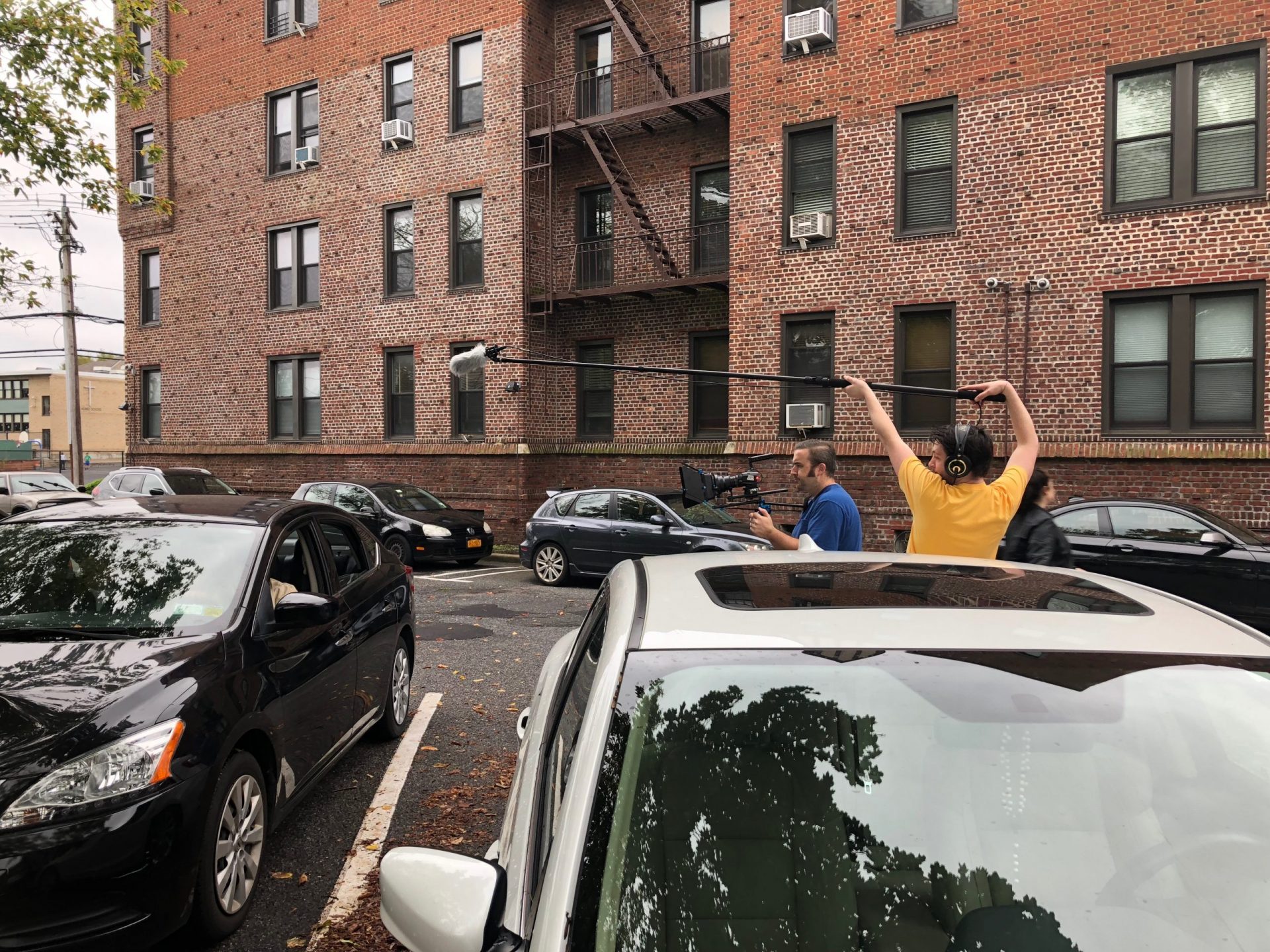
IFJ: What’s next for you?
KF: Our company, In the Garage Productions, shot and finished another feature after Family Obligations called Sofa King. I served as the DP and a producer on it. It was written by Chris Mollica, the star of Family Obligations. He also acts in Sofa King, as well as served as its editor. Kevin Wolfring directed the film. Sofa King and Family Obligations are both distributed by MBUR Indie Films Distribution. In the Garage produced another feature by writer/director Steven Tsapelas called UFO Club, which we are finishing at the moment. I was DP on that one, as well, and I’m currently finishing its sound mix. Personally, I have just finished my next feature as writer/director, a comedy called My Sister’s Wedding that will hopefully be out there at festivals soon.
IFJ: Where can people find you online to stay up to date on your projects?
KF: You can find me on Twitter at @KennethRFrank, and you can find In the Garage Productions on Twitter and Instagram at @inthegarageprod, on Facebook, or at http://inthegarageproductions.com. Our first three features (The Mix, Family Obligations, and Sofa King) are all available on disc or streaming on various platforms, notably for free on TubiTV.
Director Kenneth R. Frank
Runtime 82 min
*2019 Austin Film Festival Official Selection. 3x Best Feature Film award winner.* After his father’s sudden death, loner Peter Steele finds himself the reluctant caretaker of his sick Uncle Frank. Through new friendship with Frank’s neighbor Melanie, Peter begins to see that involvement in other people’s lives might just be worth it after all.
More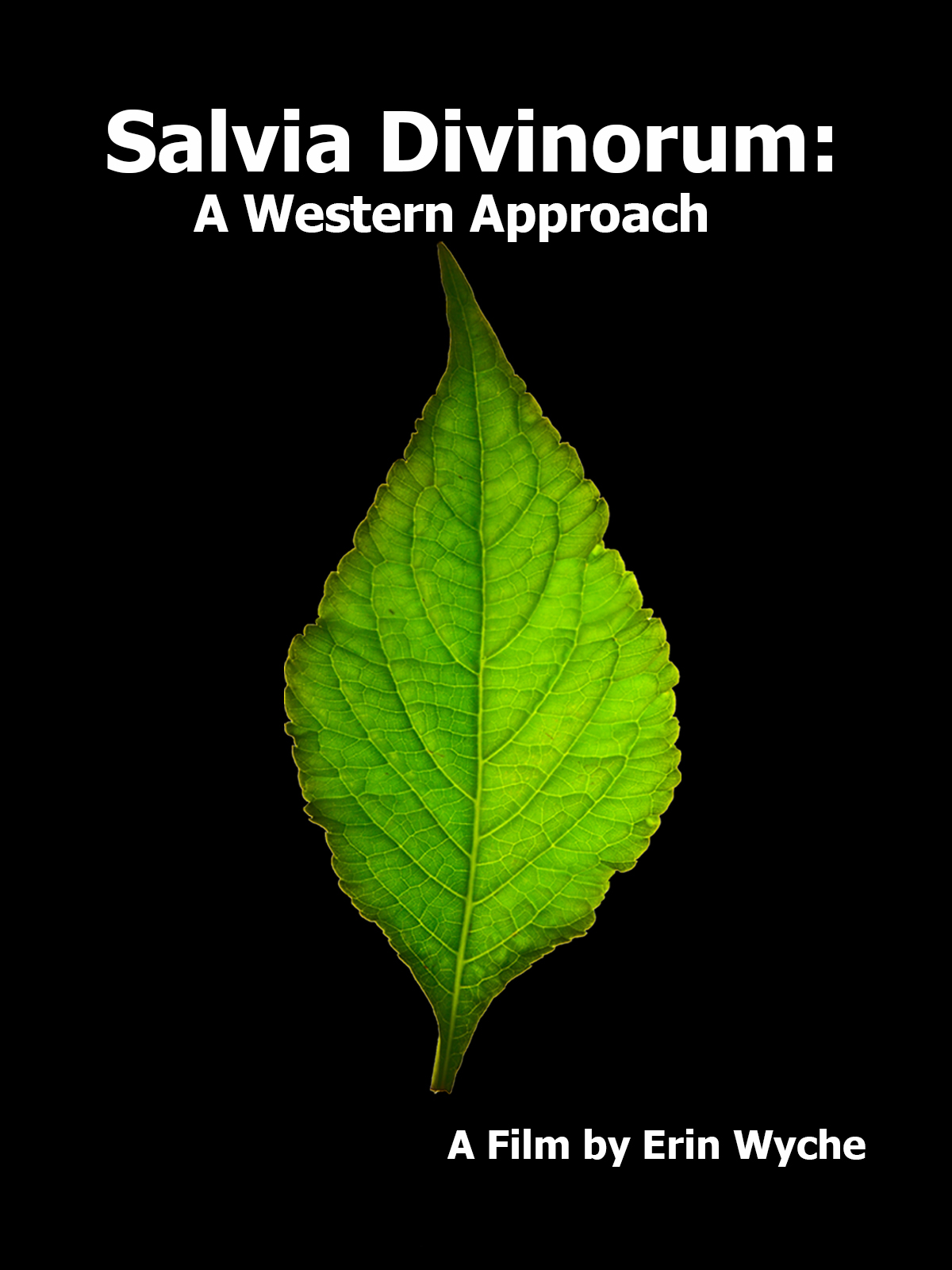
Watch On Amazon Prime
Salvia Divinorum is an often misunderstood and powerful psychedelic plant used by the Mazatec shama...